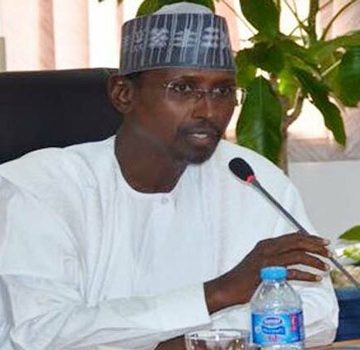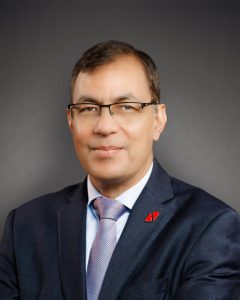
In Abuja, unregulated human activities, ranging from drilling of borehole, blasting of rocks, quarrying and mining activities are observed everywhere, despite ban on these acts. JOHN NWOKOCHA wonders if any lesson was learnt from the multiple earth tremors that occurred in September, in parts of Abuja.
“Interestingly, in a quick response to the tremor outbreak, the Minister of FCT, Mallam Muhammadu Bello directed the suspension of further quarrying and mining activities in the affected areas”
Multiple Tremors
Wednesday, September 6, at about evening, residents of Mpape, outskirts of Abuja were confronted with a terrifying earth vibrations which shook the area in what can best be described as unprecedented scale.
And a day after, while the nation was trying to come to term with the strange development, similar vibrations, but this time in the early hours, sent shock waves to residents and passersby in Garki and Gwarimpa districts of Abuja. By Friday, September 8 morning the tremors had spread to Jabi and Durumi areas of Abuja. Without exaggerations the entire residents of Abuja, Nigeria’s Federal Capital Territory were apprehensive over the three days multiple tremors. Those outside Abuja had to call their love ones to ascertain their safety when they got report of the tremors. In the midst of the fear, discomfort and agony caused by the intense earth trembling, many residents contemplated relocating out of Abuja. Of course, many resorted to prayers.
Residents’ Experiences
Said a resident, Joy Bassey, “We first noticed it on Wednesday evening and it happened twice and also on Thursday morning. The house was shaking and vibrating and you can hear a loud noise.”
Bassey who resides in Mpape, added, “I felt it on my feet. I was sitting down and I felt the ground was moving in my feet. It was a matter of seconds then it stopped. It happened again twice this morning.
“I was afraid because this thing is new in Abuja.”
Sharing his experience, another resident, Ibrahim Usman, said, “I have never had the kind of fear that I had on that day. In fact, after that experience the fear has not left me, because I have been thinking about any safe place if earth quake happens in this Abuja or in this country.
“I saw my neighbours running to different directions. I saw people dashing out of vehicles and started running. There was confusion everywhere.”
Narrating further, Usman said, “I don’t know how to put the whole thing that happened. I wish I recorded the confusion in phone. I now know that we all love our lives, nobody wants to die. I saw fear on people faces. Even where we were standing was shaking, some people started planning to relocate if they stay alive till the next day. It was a terrible experience. I can’t imagine this kind of experience and I pray that we will not experience it again in this country.”
In Maitama a highbrow area of Abuja, a resident and civil servant said, “We were really terrified when the earth shook violently. Those of us upstairs ran downstairs only to see those downstairs running upstairs”.
Like Usman and Bassey, the fear that gripped many days after the experience is that the vibration of the ground was unexpected and unusual. And going by what happens in other climes, most especially, the recent earth quakes in Indonesia where hundreds of thousand citizens were sent to their early graves, many residents in the affected areas of Abuja had felt an end had come.
FCT Minister’s Response
Interestingly, in a quick response to the tremor outbreak, the Minister of FCT, Mallam Muhammadu Bello directed the suspension of further quarrying and mining activities in the affected areas.
In a statement issued by the FCTA Press Secretary, Cosmas Uzodinma Bello gave the directive when he paid an on-the-spot visit to Mpape, where the incident was first reported
The minister also halted drilling of boreholes in the affected areas “pending the outcome of investigations on the root causes of the incidents.”
He said preliminary reports indicated that the activities of rock blasting from quarrying, mining activities, as well as proliferation of borehole drilling were likely causes of these tremors.
“Consequently, it became necessary to suspend all quarrying activities in various sites of Abuja, especially Mpape, Garki, Gwarimpa and contiguous areas.”
Saraki Too Calls for Calm
Also, responding to the development, Senate President, Bukola Saraki in a tweet on his Twitter handle, @bukolasaraki ,urged Nigerians to remain calm.
“We have all being feeling the earth tremors in Abuja and surrounding areas over the last 48 hours. I know that many people are scared, but please remain calm and vigilant.” The senate president wrote.
On their part, the FCT Emergency Management Agency in a statement called for calm and outlined steps that citizens should take when such incidents occur.
The statement reads: “We have been inundated with distress calls in our watch room as a result of earth shaking happening around Mpape and part of Maitama district of the Federal Capital Territory.
“Whilst appreciating the call from the public, the FCT Emergency Management Agency (FEMA) wishes to make the following statements:
“That the possible cause of the earth shaking might be as a result of earth tremor.
“That it is a sign of seismic movement within the earth. This is caused by sudden break along a fault line which results in sudden release of energy that makes the ground to shake.
“It is caused by stress in underground rocks and may be due to rock blasting and mining activities in an area.
“The residents are to note that there is nothing to panic about as there is no likelihood of any earthquake disaster in Nigeria as we are not in earthquake zone.
“Therefore, we are urging all residents to calm down and rest assured that the abnormal situation will soon stop.
The agency further gave out safety tips to be observed during such occurrences to avoid a disaster.
“Calm and do not panic. If you stay in a building, locate a safe room, drop down and take cover under desk or table and hold tight to it. You should stay away from windows and objects that may fall.
“If you are outdoors, find a clean spot away from buildings, trees and power lines.
“If you are in a car, slow down and drive to a clean place. Stay in the car until the shaking stops.”
As to the cause of the tremor, while the Executive Director, Urban-Rural Environmental Defenders (U-RED), God’spower Martins, said apart from natural factor identified by FEMA, “we cannot completely disassociate the reasons from anthropogenic causes such as indiscriminate rock blasting with crud technology in residential communities by quarry companies over the years in the affected communities and Abuja in general”, environmental rights activist, Nimo Bassey, canvassed the need for an urgent audit of all rock mining sites in Abuja to ascertain the legality or illegalities of the activities.
“There should be due penalty for illegal activities, halting of future rock mining and compensation of communities that have suffered loss of lives and of livestock due these reprehensible activities. Abuja may not be on a seismic faultline, but these tremors combined with similar ones recorded in Bayelsa State (related to oil and gas extraction)in the past are warnings that our actions may be leading to catastrophic results in the near future.” Bassey stated.
We are Prone to Danger-Presidential Committee
However, the findings of the Presidential Committee set up by the federal government to assess the incidents are more revealing of the dangers the country face, especially from human activities. The committee headed by the Director-General, National Space Research and Development Agency (NARSDA), Prof. Seidu Mohammed, had declared that Nigeria was now prone to seismic hazards while the possibility of an earthquake occurrence is elevated.
Part of the findings by the Presidential Committee is that for over three decades, the upland area has been dangerously exposed to unregulated drilling and blasting of rocks by quarrying companies and artisanal miners.
The committee noted that the shift in the tectonic plates, which leads to the sudden release of energy that causes the trembling on the ground, is a probable cause aside other human activities. Besides that, it said, “there is the need to regulate the exploitation of ground water resources of Abuja via indiscriminate sinking of boreholes because this has been the primary reason for the stress build up leading to the Abuja tremors”.
But for the Director General, Nigerian Geological Survey Agency (NGSA), Alex Nwegbu, who put the tremors at between 3 and 3.5 magnitude on the Modified Mercalli scale, “It is advised that once you start noticing a tremor, you move out of your house, because you can never underestimate how the structure of your house can be compromised. It could collapse.
“Presently we are collecting more data and this will help us in determining the true cause”.
Before now Nigerians had basked in the illusion that the country is not is not at risk of earthquake because Nigeria is fortunate not to be in a region prone to earthquake or where such disaster could be expected to occur. Of course the alarm being raised by the presidential committee makes the outbreak outbreak of multiple earth tremors in some parts of Abuja a wake-up call that there is need for a proper monitoring of all earthquake -prone zones in the country.
Pro-active Actions to Avert Disasters
The authorities should not lose sight of previous incidents in Kwoi, Kaduna State; Saki, Oyo State and Igbogene in Bayelsa State in 2016, and therefore, should take the incidents as serious threats. Nigerians want to see efforts by both federal and state emergencies to avert earth tremors. Earthquake is an ill-wind, a disaster that inflicts substantial human, material and economic losses, which many affected countries rarely recover from. The relevant authorities must ensure that unregulated human activities that are potential threat to the environment and could have negative consequences to the underground rocks and earth layers must stop. The appropriate authorities should implement the laws criminalising indiscriminate mining, rock blasting and digging of bore holes across the country. There are those in authority who still argue that the tremors were natural phenomena and inconsequential because they did not claim lives, and do not call for concerns. This belief should be discountenanced, governments don’t wait until worse situations happen, rather governments take proactive actions to avert impending dangers. Therefore in line with its constitutional responsibility to protect lives of its citizens the federal government should put in place necessary safety measures for Nigerians in communities that are prone to tremors and other disasters.




纸飞机下载提供中文版本的Telegram下载。不仅有pc电脑桌面版,还有苹果手机和安卓APK版本可供选择。纸飞机app是一款超10亿用户的聊天应用,其卓越的安全性和稳定性深受用户青睐。